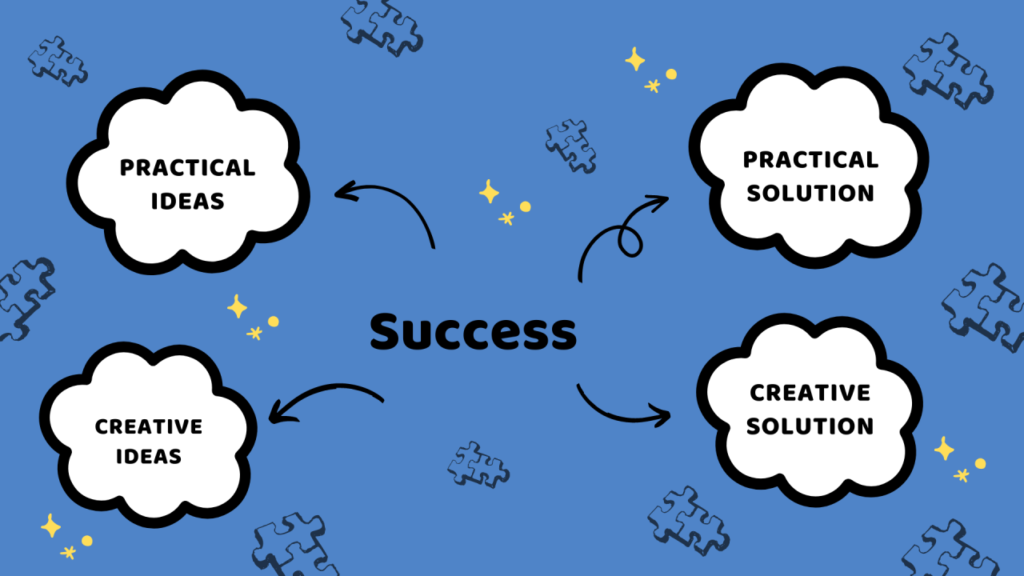Introduction:
Are you dreaming of starting your own business and becoming an entrepreneur? Embarking on the journey of entrepreneurship can be both exciting and challenging. Fortunately, with the right guidance and mindset, anyone can become a successful entrepreneur. In this comprehensive guide, we’ll outline ten easy steps to help you kickstart your entrepreneurial journey and turn your business idea into a reality.
Step 1: Identify Your Passion and Strengths
The first step towards becoming an entrepreneur is to identify your passions, interests, and strengths. What are you truly passionate about? What skills or expertise do you possess? By aligning your business idea with your passions and strengths, you’ll increase your chances of success and fulfillment.
Step 2: Conduct Market Research
Once you’ve identified your business idea, conduct thorough market research to assess its viability. Who are your target customers? What are their needs, preferences, and pain points? Analyze the competition and identify gaps in the market that your business can fill.
Step 3: Create a Business Plan
A well-crafted business plan serves as a roadmap for your entrepreneurial journey. Outline your business goals, target market, marketing strategy, financial projections, and operational plan. A solid business plan will not only guide you but also attract investors and stakeholders.
Step 4: Secure Funding
Depending on the nature of your business, you may need funding to get started. Explore different funding options such as personal savings, loans, investors, or crowdfunding. Be prepared to present your business plan and demonstrate the potential for growth and profitability.
Step 5: Register Your Business
Choose a suitable business structure and register your business name with the relevant authorities. This may involve obtaining licenses, permits, and tax registrations depending on your location and industry. Ensure compliance with legal and regulatory requirements.
Step 6: Build Your Brand
Invest in building a strong brand identity that resonates with your target audience. Develop a compelling brand story, logo, website, and marketing materials. Consistency is key – ensure that your brand message is cohesive across all platforms.
Step 7: Develop Your Product or Service
Bring your business idea to life by developing a high-quality product or service that meets the needs of your target market. Focus on delivering value and exceeding customer expectations. Gather feedback and iterate based on customer insights.
Step 8: Launch Your Business
Prepare for the launch of your business with a strategic marketing plan. Leverage various marketing channels such as social media, email marketing, and public relations to generate buzz and attract customers. Offer special promotions or incentives to incentivize early adoption.
Step 9: Monitor and Adapt
Once your business is up and running, it’s essential to monitor its performance and adapt to changing market conditions. Track key metrics such as sales, customer acquisition, and feedback. Stay agile and be willing to pivot if necessary to stay ahead of the competition.
Step 10: Scale and Grow
As your business gains traction, explore opportunities for expansion and growth. Consider scaling your operations, entering new markets, or diversifying your product offerings. Continuously innovate and evolve to stay relevant in a dynamic business landscape.
Conclusion
Becoming an entrepreneur is a rewarding journey that requires passion, perseverance, and resilience. By following these ten easy steps, you can turn your entrepreneurial dreams into reality. Remember to stay focused, stay adaptable, and never stop learning and growing on your path to success.
Frequently Asked Questions (FAQ)
- What is entrepreneurship?
- Entrepreneurship is the process of starting and managing a business venture, taking on financial risks in the hope of achieving profits. Entrepreneurs are individuals who identify opportunities, innovate, and create value through their business endeavors.
- Who can become an entrepreneur?
- Anyone with a vision, passion, and determination to pursue their business idea can become an entrepreneur. There are no specific qualifications or prerequisites, although having relevant skills, knowledge, and experience can be beneficial.
- What are the benefits of entrepreneurship?
- Entrepreneurship offers numerous benefits, including the opportunity to pursue your passions, be your own boss, create wealth, make a positive impact on society, and enjoy flexibility and autonomy in your work.
- How do I come up with a business idea?
- Business ideas can stem from various sources, such as identifying market gaps, solving a problem, fulfilling a need, leveraging personal interests or expertise, or capitalizing on emerging trends and opportunities.
- Do I need a business plan to start a business?
- While a business plan is not mandatory, it is highly recommended as it serves as a roadmap for your business and helps attract investors and stakeholders. A well-crafted business plan outlines your goals, target market, marketing strategy, financial projections, and operational plan.
- How do I finance my business?
- There are several financing options available to entrepreneurs, including personal savings, loans from banks or financial institutions, angel investors, venture capital, crowdfunding, and government grants or subsidies.
- How do I protect my business idea?
- While ideas themselves cannot be patented, you can protect your business through intellectual property rights such as trademarks, copyrights, patents, or trade secrets. Consult with legal professionals to determine the best strategy for protecting your intellectual property.
- What are some common challenges faced by entrepreneurs?
- Common challenges faced by entrepreneurs include securing funding, managing cash flow, navigating regulatory requirements, building a customer base, competition, hiring and retaining talent, and maintaining work-life balance.
- How do I market my business effectively?
- Effective marketing involves identifying your target audience, understanding their needs and preferences, developing a compelling brand identity, and implementing a strategic marketing plan using various channels such as social media, content marketing, email marketing, and networking.
- How do I measure the success of my business?
- Success can be measured using various metrics, including revenue growth, profitability, customer satisfaction, market share, brand awareness, and employee retention. Define key performance indicators (KPIs) relevant to your business goals and track them regularly to gauge your progress.
